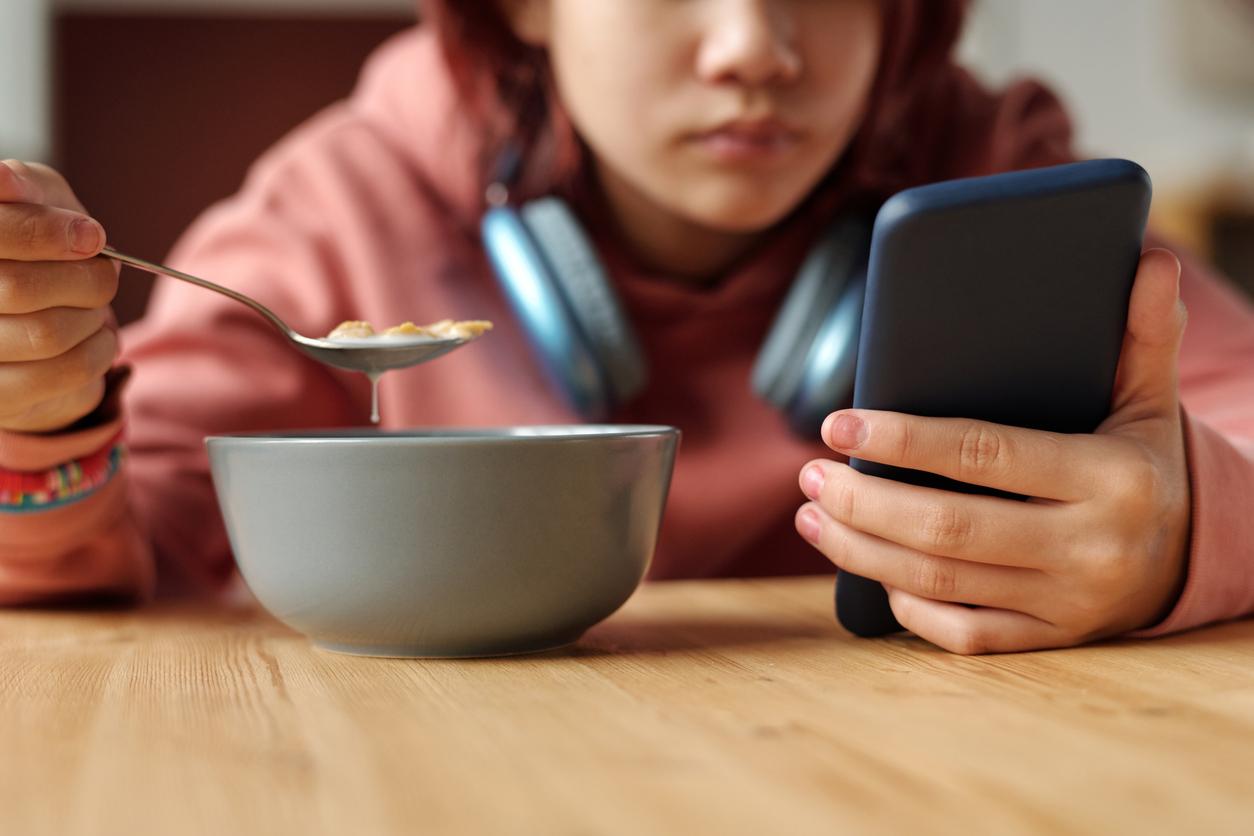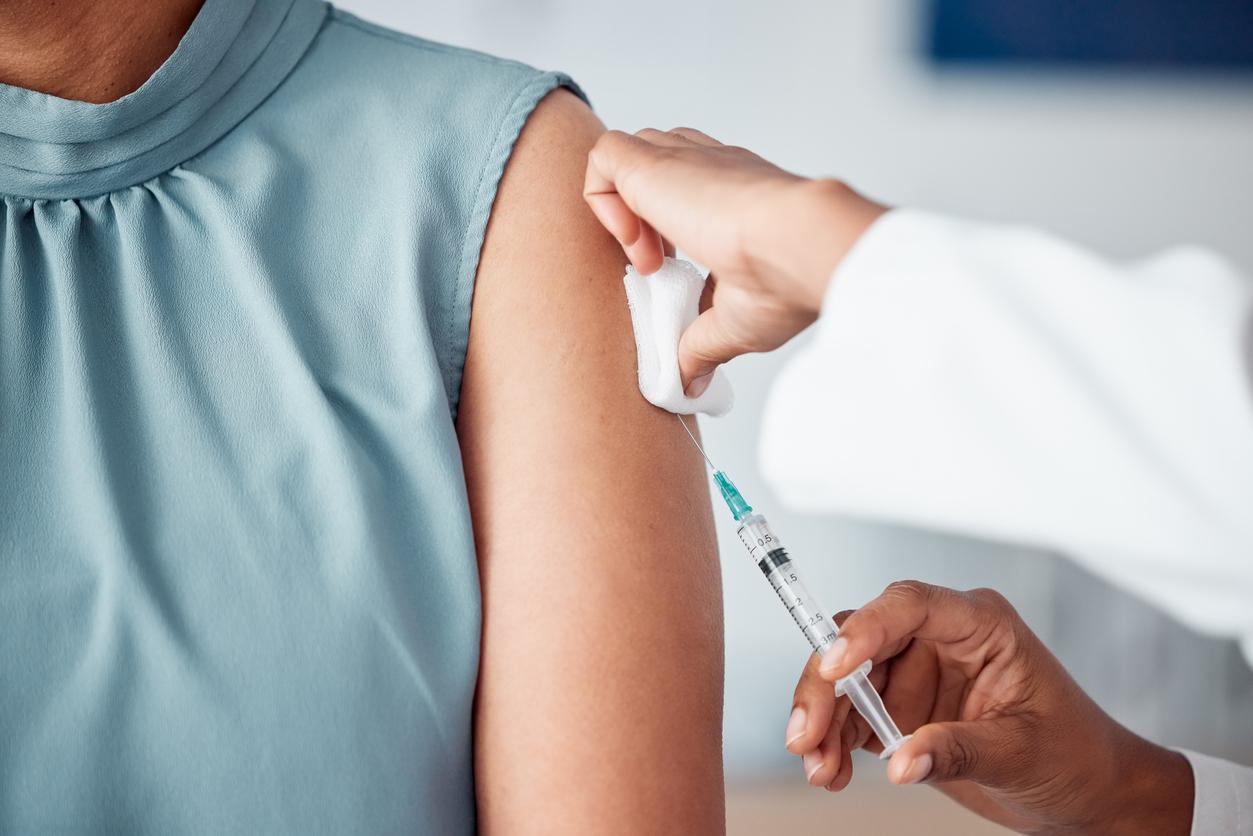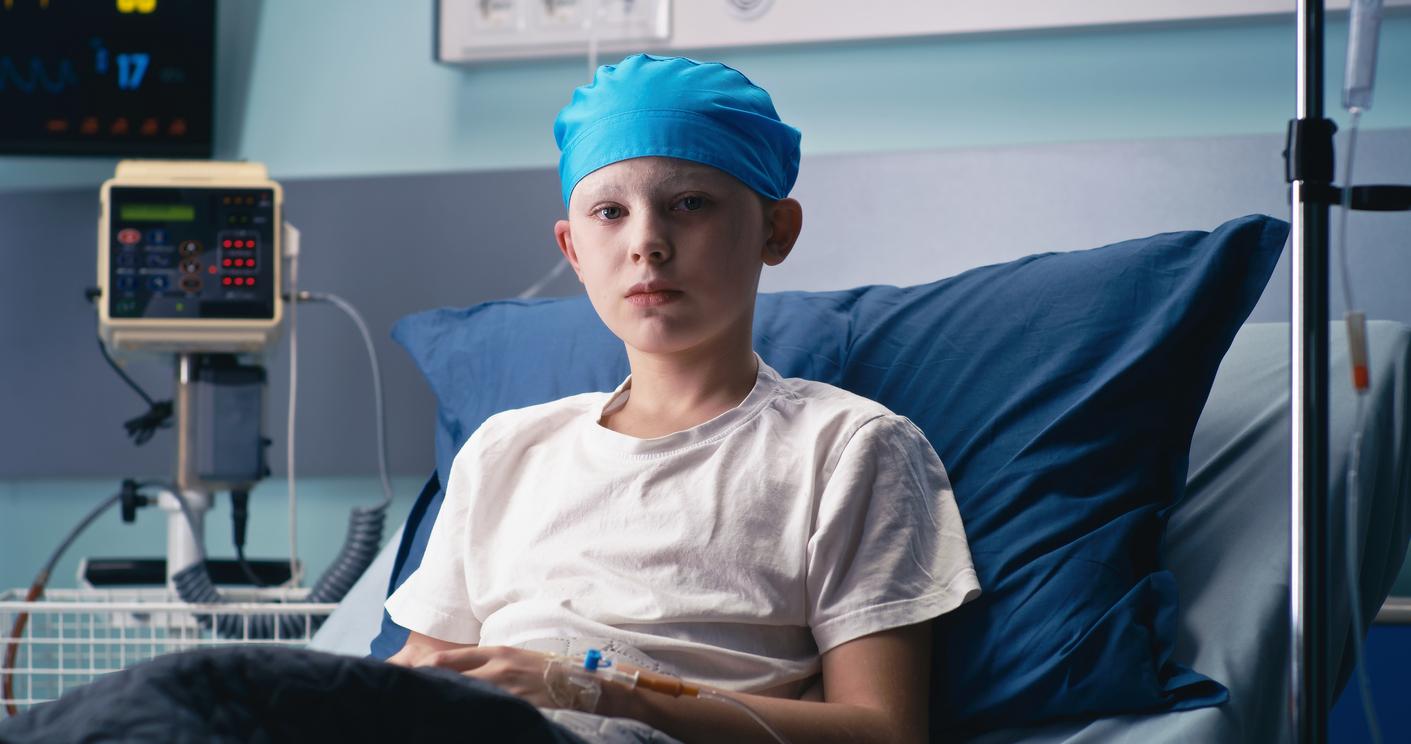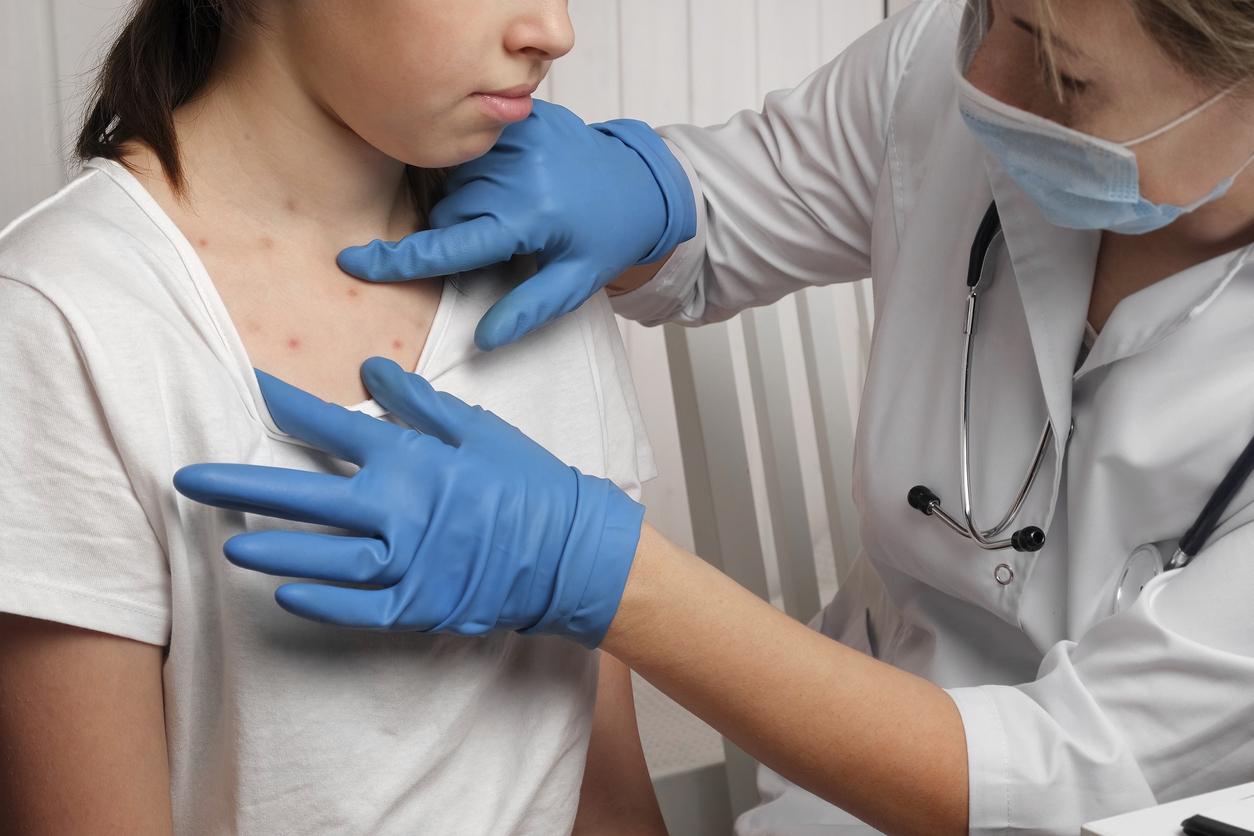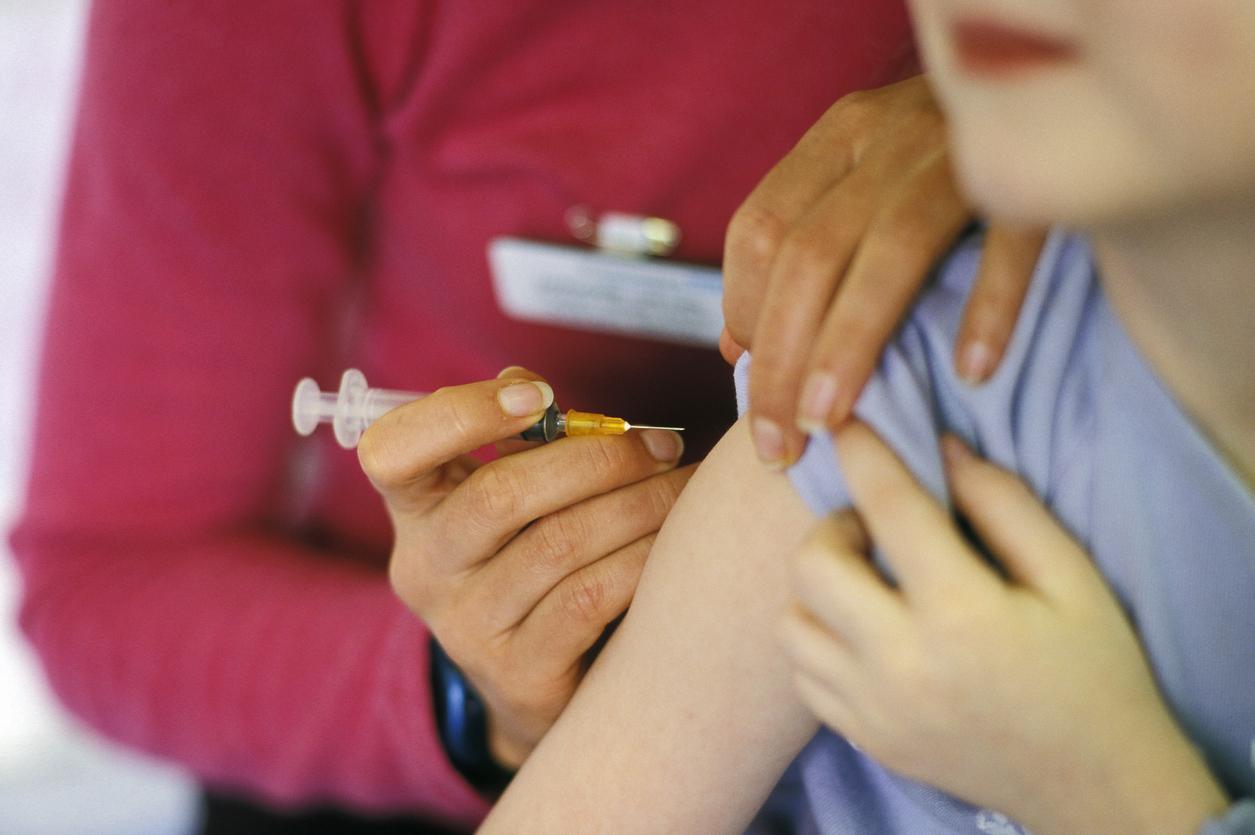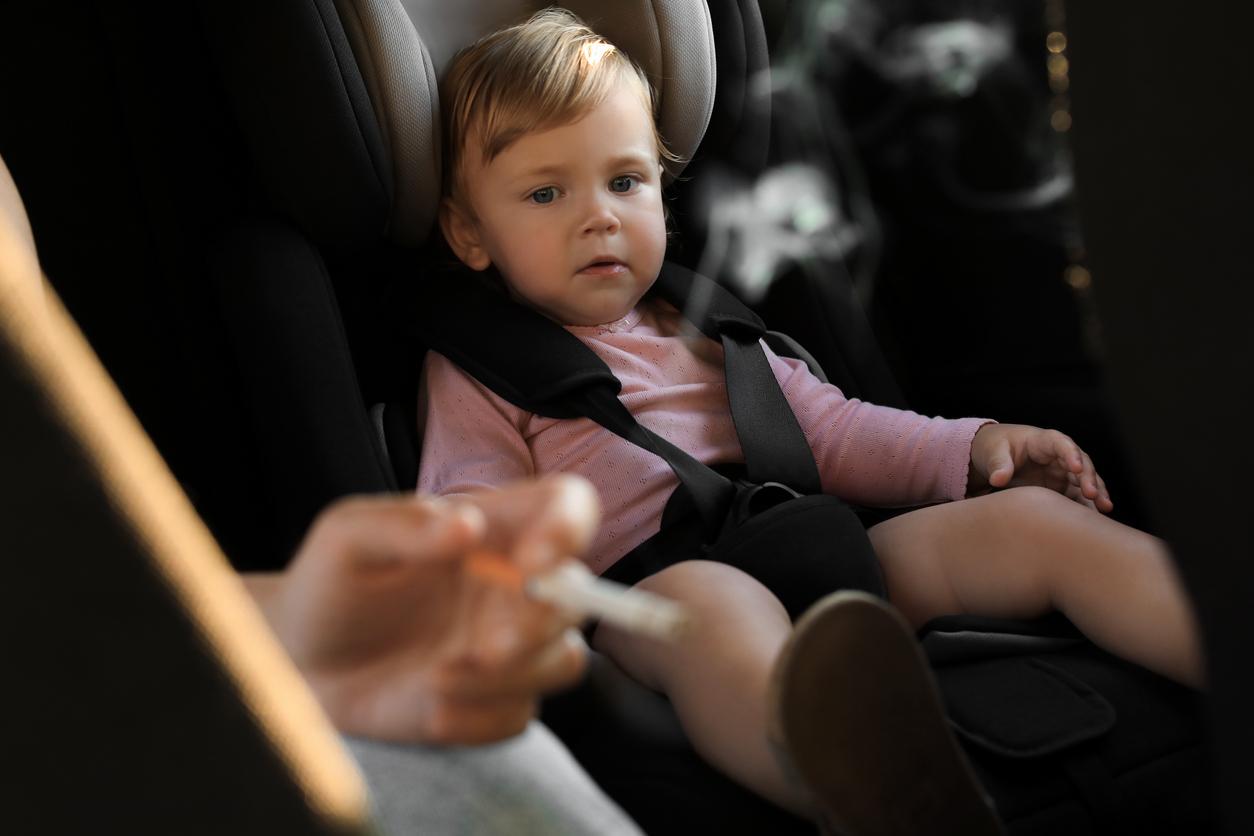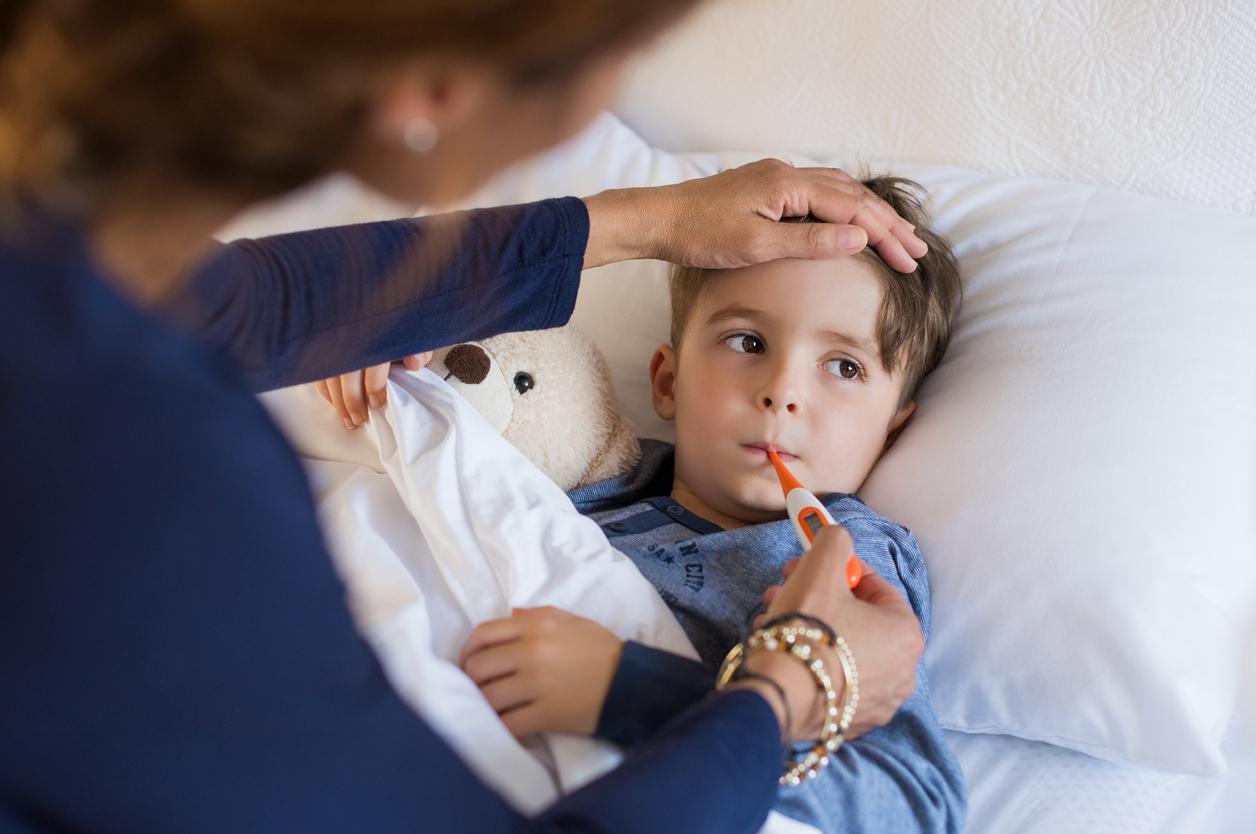While the number of cases of pediatric multi-system inflammatory syndrome (PIMS) increased sharply at the end of January 2022, “in connection with the circulation of the virus among children” according to Santé Publique France, a new american study was interested in the causal link between the injection of the vaccine and the contraction of PIMS.
Published on February 22, 2022 in the journal The Lancet Child & Adolescent Health, the study involved 21 adolescents, aged 12 to 21, all with PIMS and vaccinated. Among them, six did not present no trace of Covid-19 infection.
Scientists from the US Center for Disease Control (CDC) finally concluded that it there was no sufficient scientific evidence to make a link between vaccination and contraction of PIMS. “The contribution of vaccination to this disease is unknown“, they concluded. While adding that the cases of PIMS were very few in young vaccinated and more numerous in those who are not.
PIMS: what is this pathology that affects children?
If you’ve never heard of the multi-system inflammatory syndrome (PIMS) in children, don’t worry: it’s normal. The PIMS (also called “multisystem inflammatory syndrome in children” in English, or “child and adolescent multisystem inflammatory syndrome” in French) is a new disease, detected for the first time in March 2020 in Europe.
Observed in France as well as in various European countries (in particular in Italy, United Kingdom, Belgium, Spain), in North America (in particular in the United States) as well as in Asia and Latin America, PIMS is a disease closely linked to infection with the coronavirus SARS-CoV-2. This is a fortunately rare pathology: thus, 932 cases have been recorded in France on January 27, 2022 (since March 2, 2020), including 849 in connection with the Covid.
Multi-systemic inflammatory syndrome (PIMS) in children: what are the symptoms?
Childhood inflammatory multi-system syndrome (PIMS) has long been confused with Kawasaki disease. Indeed, the symptoms of PIMS can be reminiscent of those of this vasculitis. In children and adolescents with PIMS, we can observe in particular:
- A high fever : often above 39°C,
- A significant deterioration in general condition : the child is apathetic (he is not motivated for anything), he suffers from extreme asthenia (he is abnormally tired), he has no appetite, he has chills, he is pale, he has widespread pain, he has marbling (spots that look like marble on the skin),
- Of the digestive signs : abdominal pain, diarrhoea, nausea, vomiting,
- Less commonly, signs of shock may be seen: pallorpolypnea (understand: jerky breathing), tachycardia (heart palpitations), abnormally low or variable blood pressure…,
- Less frequently, cutaneous and mucosal signs can be observed: pimples on the skin, itching (pruritus), swelling of the hands or feet (edema), dry and cracked lips (cheilitis), etc.
- Less frequently, neurological signs can be observed: irritability, headaches (headaches), mental confusion, etc.
What do we know about the profile of children with PIMS syndromes?
According to Public Health France, out of 849 cases (between March 2, 2020 and January 23, 2022), 372 cases (40%) concerned girls. The median age of cases was 7 years (25% of cases were ≤ 4 years old and 75% ≤ 11 years old).
Among these 849 patients, a stay in intensive care was necessary for 353 children (42%) and in a continuous care unit for 250 (29%). The other children were hospitalized in the pediatric ward. A 9-year-old child died in a picture of systemic inflammation with myocarditis.
The regions reporting the highest number of cases are Île-de-France (328 cases, 35%), Provence-Alpes-Côte d’Azur (134 cases, 14%), Auvergne-Rhône-Alpes (114 cases , 12%), Occitanie (65 cases, 7%), Grand Est (64 cases, 7%) and New Aquitaine (42 cases, 5%). The other regions reported less than 40 cases each.
Multi-systemic inflammatory syndrome (PIMS) in children: what management?
Multi-systemic inflammatory syndrome (PIMS) in children, is it serious? Yes. Although rare, PIMS remains a severe pathology: indeed, among the 520 cases currently recorded in France, 2/3 of children and adolescents were hospitalized in intensive care and one of them died.
In the event of symptoms that may suggest a PIMS, the High Authority for Health (HAS) recommends going to the Emergency Room, especially (but not only) if there is a “history of recent SARS-CoV-2 infection” (within 4 to 6 weeks before symptoms) or “close contact with someone infected with the virus“.
The management of PIMS is done in the hospital, in the pediatric department: it is coordinated by emergency physicians, intensive care pediatricians, cardiologists, infectiologists and rheumatologists. It consists of preventing and correcting organ failure (heart failure, for example), rapidly reducing inflammation, and limiting the risk of sequelae.
Multi-systemic inflammatory syndrome (PIMS) in children: what are the causes?
Some children infected with SARS-Cov-2 develop severe inflammation four to six weeks after their infection, with various symptoms: fever, gastric pain, rash, etc. In about 70% of cases, this so-called “multisystemic” inflammatory syndrome is extends to the myocardium, the muscle responsible for cardiac contractions.
Researchers may have found an explanation for this pathology. In study published in the journal MEDscientists from Inserm, AP-HP and University of Paris at the Institute Conceived, in collaboration with the Institut Pasteur, analyzed the blood of a cohort of 56 young patients who had been hospitalized at the Hôpital Necker Enfants-Malades AP-HP. They were able to identify abnormal expression of several genes associated with the occurrence of severe forms of myocarditis. This molecular signature could ultimately make it possible to identify children at risk of developing this rare cardiac inflammation.
These results confirm a study published on May 25, 2021 in the specialized journal Science Immunologyaccording to which there are similarities between the inflammatory multi-systemic syndrome (PIMS) in children and staphylococcal toxic shock syndrome.
Indeed: toxic shock syndrome (which we recently heard about: it was then a question of tampons) is caused by a toxin emitted by a bacterium which massively activates the patient’s immune system.
However, according to the study, in 75% of the cases of PIMS studied, a “immunological signature” could be observed: the disease would therefore result from a “major activation state of a subgroup of T lymphocytes” in the patients concerned. Clearly, PIMS would therefore probably be a post-infectious disease due to an abnormal response of the immune system.
Sources:
- Surveillance of Pediatric Multi-System Inflammatory Syndrome Cases (PIMS or MIS-C), SPF, January 27, 2022.
- Inserm press releaseSeptember 16, 2021.
- Press release Haute Autorité de Santé (HAS)
- French Society of Pediatrics
- Lyon Civil Hospices
- “Reported cases of multisystem inflammatory syndrome in children aged 12–20 years in the USA who received a COVID-19 vaccine, December, 2020, through August, 2021: a surveillance investigation”, The Lancet Child & Adolescent HealthFebruary 22, 2022
Read also :
- Less Covid-19 in children: a link with blood vessels?
- Covid-19: more and more children hospitalized in the United Kingdom
- Coronavirus screening for children: is it compulsory?











